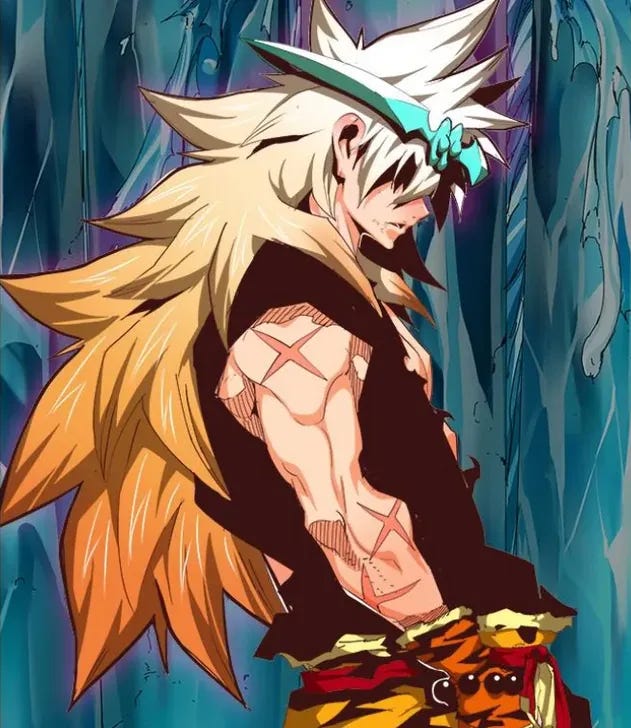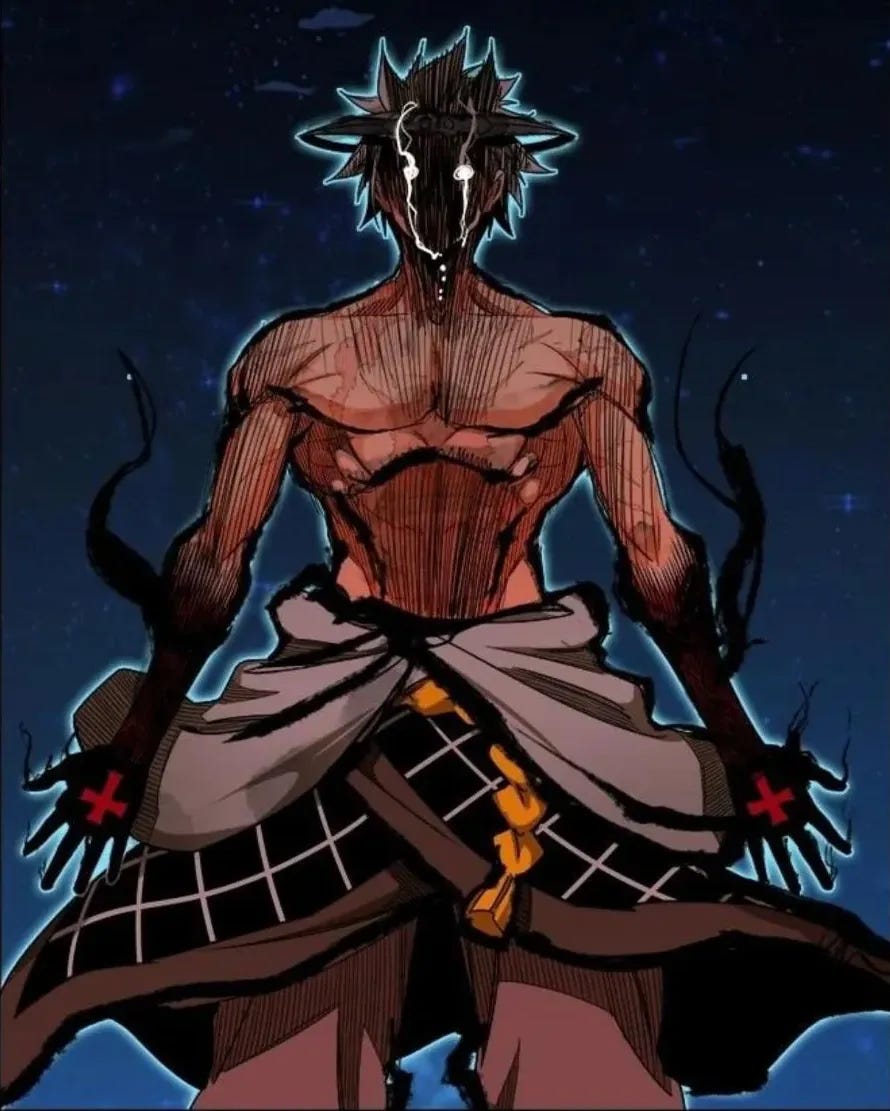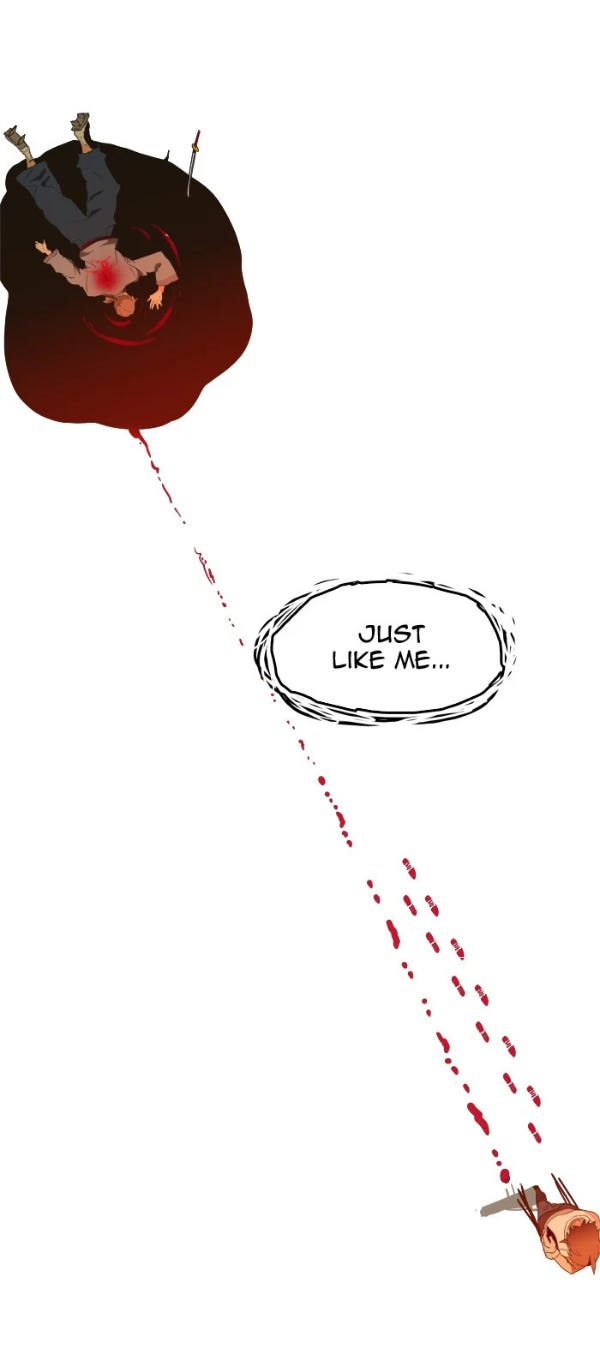This manhwa is way better than Solo Leveling
Put some respect on The God of High School's name
Last week’s post gave my thoughts about Solo Leveling, one of the most popular manhwa/anime of the season. I talked about how it was a fun watch, but more spectacle than substance. This holds true for most action manhwa, most of which are inspired by Solo Leveling’s success. It does not hold true, however, for the manhwa I am about to introduce to you.
The God of High School by Park Yongje was serialized between 2011 and 2022, running for 570 chapters. Yeah, it’s a big one. But if you’re willing to follow it to the end, I promise you you’ll be rewarded. It is inspired by battle shonen manga like Dragon Ball and Naruto, and draws heavily from Chinese mythology.
Many people judge this series solely by the anime adaptation. While the anime did a great adaptation of the fights, it crammed over a hundred chapters worth of story into just thirteen episodes. Predictably, this completely butchered the storyline, and GOH gained a reputation as an anime with great fights but no plot. In this post, I aim to fix this misconception.
The Plot
Teenage martial artists around Korea are invited to participate in a mysterious tournament known as The God of High School, with the winner getting any one wish of theirs fulfilled no questions asked. The characters learn Charyeok, the ability to draw power from mythical creatures, and fight Nox, a religious cult that wishes to destroy humanity.
There’s way more to it than that, but that’s the basics. GOH is a series that requires patience; it introduces plot points that can take hundreds of chapters to resolve. Like all series of that length, it fluctuates in quality. Still, when it’s good, it’s very good. The ending in particular I really loved. While many series fail to stick the landing, GOH managed to wrap up all the plot points in a way that was unexpected, but still incredibly satisfying.
The Protagonist
Jin Mori is one of my favorite protagonists in anime. The inspirations of classic shonen protagonists, especially Goku, are clear. He’s entertaining to watch, goofy, but also cool when the situation calls for it. However, where he really shines is the second half of the series. Here, he breaks away from being a traditional shonen protagonist. How? Simple. he loses his powers. If someone defines themselves by their strength, weakness strips them of their identity. Mori is forced to reassess his strengths, compensate for his weaknesses, and grow as a character. He goes through an amazing character arc that is one of the highlights of the series, having to accept his own flaws and learning to work through his grief and seek help from others.
The Antagonists
Park Yongje has a talent for making his villains infinitely punchable. When I was reading the series week-to-week, I was praying on their downfall in a way that I rarely do. The villains feel like real threats, forces of nature that our characters can’t win against. But when they do, it normally feels earned instead of cheap. The best villains in the series all have interesting motivations that I can understand and relate to. We see their backstories, which are more interesting than the generic tragic anime backstories. We understand why they are the way that they are. And I still want to punch them.
The Side Characters
The deuteragonists of the series, Mira and Daewi, are some of the most interesting characters in the series. With Mori, they form a trio clearly inspired by the main trio of Naruto. Mira and Daewi are infinitely more complex and likable than Sakura and Sasuke. Both have their own arcs that resolve beautifully. Watching them grow and change, go through incredible pain, and then heal from it, and finally come into their own over the course of the series, is an amazing journey.
GOH is one of the few series where the main character can be removed from the story for over a hundred chapters without the story suffering. Replacing a main character is no small feat, but Yongje does it masterfully. Mori’s replacement, whom I can’t really talk about without major spoilers, is another of my favorite characters in the series. There is a wide cast of side characters, all of whom are incredibly interesting (admittedly, many of them are sidelined for a large part of the series, but I like how the author tried to give all of them moments or at least cameos in the final arc).
The Action
I’ could gush on and on about how visually stunning the art is, how clean the choreography, how the series blends fantastical and mythological elements with martial arts. Alternatively, I could let these panels speak for themselves.
Conclusion
The God of High School is not a perfect story. There are places where the pacing drags on, or where the author focuses on characters that are boring or annoying. Still, it’s visually stunning, has some fantastic characters and an ending that I really enjoyed. Is it better than Solo Leveling? Yes, although that’s a depressingly low bar. Is it good on it’s own merit? In my opinion, absolutely. If you ever feel bored, or are searching for a new series to read, give this mishmash of martial arts, battle shonen manga, and Chinese mythology a try.











The way I clicked the like button as soon as I saw GOH. XD
This webtoon was amazing though! I hope it got the recognition it deserves. Glad you wrote this piece! :D ✨